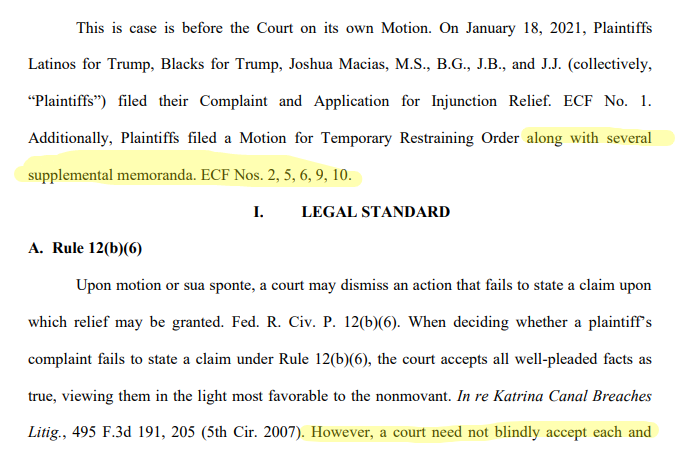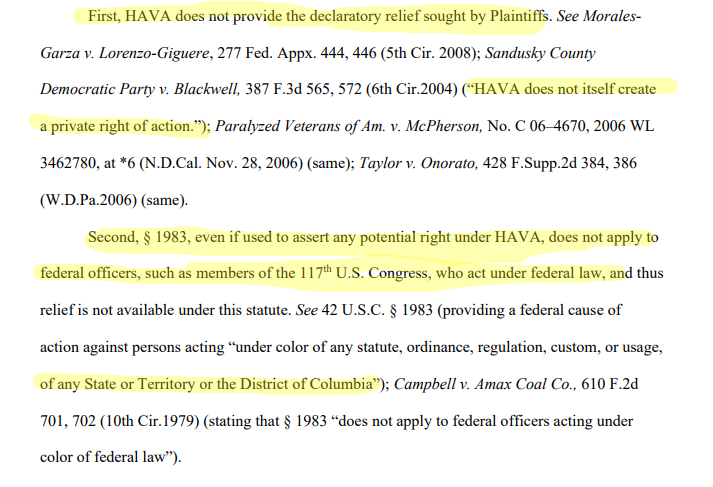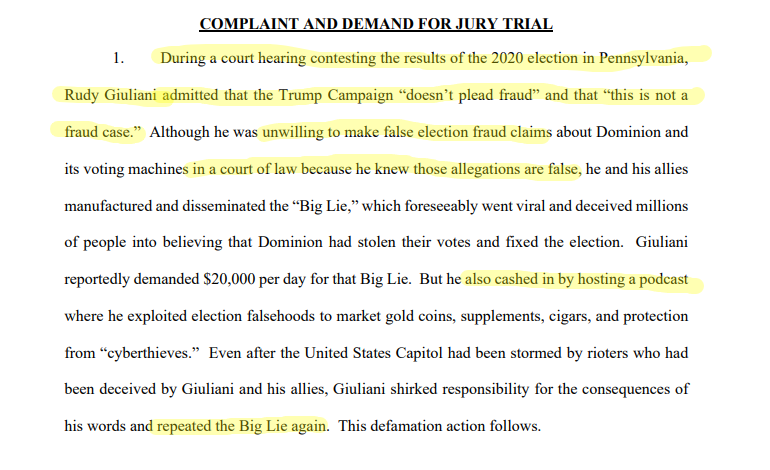
Oh. OHHHHHH. This I've got to see.
https://twitter.com/questauthority/status/1354542285971550209
This is NOT something you ever want to see as a litigator. It means that the judge chose to read your pleadings and thought that they were so jacked up, somehow that she wants you in her courtroom, right goddamn now, to explain what the hell you were thinking 

That's one way to describe the Plaintiffs' blind, repeated, flailing attempts at submitting a motion for a TRO, I guess. Seriously, if you haven't followed these filings, they're SPECTACULAR 



They include, I shit you not, the Plaintiffs' attorneys:
1) Repeatedly insulting the court, arguing that if it hasn't granted the TRO they want (you know, removing the US government) it must be because the Court lacks the courage needed; and
1) Repeatedly insulting the court, arguing that if it hasn't granted the TRO they want (you know, removing the US government) it must be because the Court lacks the courage needed; and
2) Repeatedly trying (and failing) to explain their galactic ineptitude by whining to the Court about their sleep schedule and (I can't believe I'm typing this) sewer system
I really really never imagined I'd ever see "look, your honor, I'm sorry, but I've been pulling all-nighters working on this and it's making me loopy" in a court filing, let alone multiple, serial court filings in the space of a week
OK, so this takes a lot of litigation experience to parse, but luckily, you have me to do it for you. Here, the Court is oh-so-subtly communicating that it may well not be particularly on board with the ... theory ... that the complaint is running with 

Let's talk about that for a second. You don't *actually* necessarily have a right to sue for any violation of federal law. Yes, even if you're harmed by it. Congress has to create a "private right of action" (i.e. say "and private citizens can sue over this")
For example, take the CARES Act. It doesn't specifically say that "and if a bank violates the lending procedures and you don't get a loan as a result, you can sue them". So there's no right to sue unless the Court finds an implied right of action, based on a four element test
1) Was the statute enacted to benefit you and people like you?
2) Is there any indication in the law, one way or the other, about private law suits being available or not?
3) Is allowing people to sue consistent with the law's purpose?
4) Is this traditionally a state law claim?
2) Is there any indication in the law, one way or the other, about private law suits being available or not?
3) Is allowing people to sue consistent with the law's purpose?
4) Is this traditionally a state law claim?
If you're interested, here's a 2020 decision applying that test and explaining that no, you don't get to sue your bank for violating the CARES act law.justia.com/cases/federal/…
Here, the plaintiffs are suing for violation of HAVA, a federal voting procedure law that doesn't say "and individual citizens can sue over this". And, well, it's not likely that "individual citizen lawsuits to overthrow the government" was REALLY what Congress had in mind
So ...
And, well, Section 1983 of the Civil Rights Act - which DOES create a private right of action - is specifically limited to violation of law by STATE ACTORS to harm civil rights. These bespoke jesters are complaining about *federal* officials. So ... that's another problem
And with that, the Court instructs our favorite circus clowns to put on their fanciest bells and noses and explain why their case shouldn't be dismissed ---
No, actually, he just said "y'all need to fix your complaint, given that I've now told you the law"
No, actually, he just said "y'all need to fix your complaint, given that I've now told you the law"

And that's a wrap.
Anyone taking bets on how well or poorly they'll handle this?
• • •
Missing some Tweet in this thread? You can try to
force a refresh






